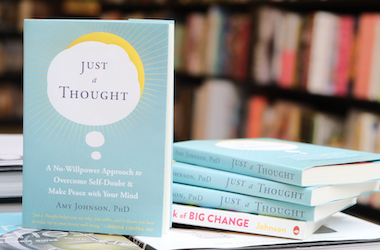There are many signs and symptoms of stress. Stress occurs when the mind perceives a threat. It can be a mild threat like an argument with a loved one, or it can be a severe threat like a grizzly bear chasing you. In both cases, stress is part of the survival system in your body preparing you for work and effort.
On their own, stress symptoms are not harmful for the body. The body is designed to handle different kinds of stress for limited periods of time, and still be healthy and functional. Exercise and sauna use are forms of stress that can be very beneficial for the body, but running a marathon everyday or sitting in a sauna for too long would be harmful.
The body is designed to handle survival threats quickly, and then to go back to homeostasis–normal. In our modern lives, however, it is easy to fall into chronic stress.
There are many side effects of stress. These include physical and emotional signs of stress.
Physical Stress Symptoms
- Elevated heart rate
- Loss of appetite
- Stomach pain, irritable bowel symptoms, or diarrhea
- Insomnia
- Hives, unexplained rashes, and itchiness
- Increased sweating
- Headaches, muscle tension or chronic pain
Emotional Signs of Stress
- A feeling of impending doom
- Racing thoughts or inability to focus
- Agitation and irritability
- Feeling anxious, nervous, or afraid
- Existing mental health problems getting worse
- Substance abuse
- Not enjoying things you used to enjoy
- Hypervigilance
- Panic attacks
- Procrastination
Warning Signs of Extreme Stress and Chronic Stress
- Feelings of disorientation or depersonalization
- Dissociation
- Poor memory or memory gaps
- Losing weight or gaining weight
- Depression
- Burnout
- Chronic fatigue
- Chronic pain
- Getting sick frequently
The initial stress response is not harmful: it is the wisdom of life preparing us for action and protecting us from threats. When there is chronic stress, the energy continues in this heightened, concentrated way, and the body must prioritize key functions to survive.
It takes a lot of energy and calories to stay in a state of hypervigilance or stress. The body starts to prioritize the most essential organs, while keeping the stress responses “on.” The energetic cost of staying “primed for action” is reduced functioning of everything not necessary for immediate survival.
That is why there is reduced energy for things like being present in your relationships and getting things done on your to do list.
What Causes Stress?

Our bodies are simple, they do what the brain tells them to do. Stress is caused by what the mind believes are threats. We live in the feeling of our thinking, which means that the body feels what the mind thinks. The signs and symptoms of stress are the result of the body feeling what the mind thinks consciously and subconsciously.
It might look like circumstances cause stress. Perhaps it looks like your job stresses you out, a relationship is stressful, or the news is stressful. This is an innocent, completely understandable, misunderstanding.
The brain might be conditioned to trigger certain kinds of thinking based on events, but the stress response is triggered by the mind thinking. This is why someone with PTSD can feel signs of extreme stress long after the event(s) that triggered the stress response have passed.
What is the Solution to Stress Symptoms?
The short answer is to only be stressed for short periods of time, with adequate rest in between. But that is easier said than done. If you have experienced chronic stress for a long time, you may be used to it humming in the background. Maybe you are only concerned about it now because of the signs of too much stress or the overwhelming feeling of the symptoms of stress.
Consider that the stress symptoms you are experiencing might be your body’s way of getting your attention so that you can get the help you need. Our bodies are very wise, and they will persistently work to get our attention.
Stress unchecked shows up in all kinds of ways. Instead of blaming the symptoms, what if the symptoms are signs of your innate health signaling to you that you are believing some scary thinking?
Each person’s journey back to their innate health and wellbeing is unique. Every mind-body system is different, and so it is very important to pay attention to your body.
The one thing we all have in common is that we feel our thinking, but we do not have to believe our thinking. Be kind and gentle with yourself when the signs and symptoms of stress show up. They are there to let you know you believe some really scary thinking.
We all get caught up in thinking that looks really personal and scary. That’s okay. The key is not to hold onto it or resist it by trying to get rid of it. The nature of thought is that it changes all on its own.
In the meantime, it is important to take care of yourself as the body recovers and the nervous system returns to normal. Eating plenty of food, taking breaks, doing things that feel good to you. Things like massage, talking with friends, or reading a good novel can all help your mind-body regulate and return to normal. It is important to do what feels good to you, and not just follow advice.
Life is constantly changing and shifting from one moment to the next. We cannot predict the future, even though our lovely brains will try really, really hard to protect us from things that have not happened. This is just a mind doing its job.
What Happens when we Try to “Fix” the Stress Symptoms instead of Understanding what Causes the Signs of Stress?
If we focus on resisting the symptoms, it is likely the stress will increase. For example, a woman who is stressed out and having trouble sleeping might hear that exercising more will help her sleep better. That makes sense! And maybe it works for lots of people. She continues to exercise more and more, but instead of feeling better, she feels worse.
If she thinks that the issue is she needs more willpower to continue exercising, or she must not be doing it “right”, she might get MORE stressed out as her thinking speeds up and tries to solve a problem it created in the first place.
Exercise is a form of stress, and if the body is depleted, more stress (even good stress) will exhaust the body instead of helping it return to normal. This is why it is really important to listen to your body instead of blindly following advice.
I know this firsthand. I used to live in chronic stress, but I thought the issue was that I needed better habits, and to get better habits I needed more willpower. I tried to solve the external symptoms of procrastination, depression, and anxiety through more mental effort. I did not know that when you are stressed, the quality of your thinking goes down. It makes more sense to rest, and let the thinking settle, then to push through.
It was an innocent misunderstanding, but I did not realize the depression and procrastination were my body’s way of forcing me to take a break from the intensity of the stress. Depression was my healthy habit–it was the best tool my body knew to take care of me.
It looked to me like I was stressed because I needed to perform better in college, in relationships, and at work. I was terrified of disappointing other people’s expectations, so I lived in constant anxiety.
Brains are very simple. They run on basic emotional algorithms like “offending others is dangerous” or “disappointing the boss is bad.” These algorithms get attached to our survival response due to our conditioning.
“Bad” might mean something really scary if you experienced childhood abuse, or come from a religion where being “bad” sends you to hell.
The Symptoms of Emotional Stress Started to Fall Away
Everything changed when I saw that my “bad habits” and “problems” were created by stress, and that the stress was caused by my thinking.
I had a very innocent misunderstanding that if I could control my performance, I could avoid the scary things in the outside world that my brain thought were terrifying.
If I could be perfect, I would not be punished for being bad. If I never disappointed people, I would never be lonely. So I ran around trying to be perfect, according to whatever standard my brain latched onto–usually other people’s opinions of how I should live my life.
It was exhausting, and only stressed me out more, which created more symptoms, which I then worked even harder to fix. It was a horrible cycle I was stuck in. The harder I worked to find a solution, the more stressed I got, and the worse I felt. I also started to get really scared that there was not a solution, and I was doomed to live with these feelings forever.
It was all an innocent misunderstanding on what the symptoms meant. They were like the check engine light on a car warning that something was up, and I should pull over instead of speeding up.
When I realized that I was living in the feeling of my thinking, things started to shift. I saw that I did not need to believe my thinking that “procrastination” was bad and made me bad. I started to question my thinking instead of assuming it was always right. I started to question my beliefs about what made me safe:
- What if procrastination was a sign of my health and wellbeing?
- What if depression was my body’s way of taking care of me?
- What if there were no “shoulds” about who I needed to be or what I needed to do?
- What if I was already, perfectly safe?
- What if the feeling of terror was just a really vivid virtual reality experience my brain gave me due to some childhood conditioning?
- What if my stress symptoms weren’t personal, and had nothing to do with me or my circumstances?
As I questioned these beliefs, my nervous system started to settle down. As my nervous system started to settle down, the quality of my thinking improved. I started to really see how unreasonable the expectations were I put on myself, and I would settle a little more, and the quality of my thinking improved some more. That created a wonderful spiral where I would relax, and realize I was safe to relax some more.
Every person’s journey is different. If you are expressing a lot of stress and heavy thinking, you are not alone. The Little School of Big Change, and the community of Change Coaches, are here to help you discover the natural resilience and wellbeing that is your birthright.
Freedom from Stress with Dr. Amy Johnson
Amy Johnson is a psychologist and Change Coach who helps people find freedom from anxiety, habits, insecurity and low self-esteem. She has written several books and leads live courses and group coaching.
Amy Johnson helps find freedom from stress and anxiety through insight and wisdom, not willpower.
One of Amy Johnson’s most popular books is The Little Book of Big Change, about the principles behind the human experience. The Little Book of Big Change shares a unique approach to healing anxiety, worry and insecurity. The Little Book of Big Change will help you understand what is at the root of your anxiety, low self-esteem, and self-destructive habits.
About the Author

Gabi Fisher is a certified Change Coach.
You can see more about Gabi and her coaching services here.






